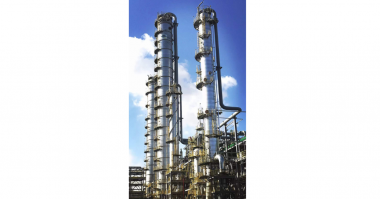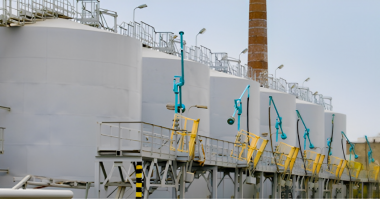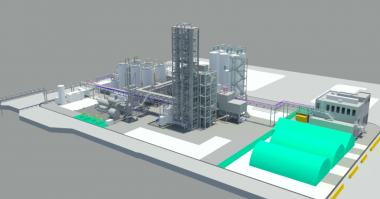Michelle Segrest – Reporting on the Pump Industry
The challenges surrounding water scarcity continue to be on the minds of technology providers, water experts, policy makers, legislators and water professionals. Desalination is one technology that can provide solutions. However, this is an enormously expensive and energy intensive technology.
To discuss solutions, which include intersecting water and energy in what the Department of Energy has defined as the “water-energy nexus,” the industry meets in San Diego in August for the International Desalination Association World Congress. This is the first time in 16 years the event is being held in the United States.
Meanwhile, in other industry sectors, DOE regulations with regard to integral HP motors takes affect in one year while U.S. manufacturing experiences a boost as does the shale industry as the price of oil continues to be a concern. The importance of fugitive emissions testing with regard to valves was the buzz at ValveWorld Americas this month in Houston.
Read here for additional insight into some of these and other important topics the industry is talking about this month.
WATER SCARCITY
Is Desalination the Answer to California’s Drought?
IDE Technologies is an Israeli company that designs and operates mega-scale desalination plants worldwide. IDE’s Carlsbad facility will be the largest desalination plant in the Western Hemisphere. Built in collaboration with the San Diego County Water Authority and Poseidon, a private developer of water infrastructure, the plant will come online in early fall, and is currently in the early stages of startup. Nearly a tenth of the San Diego County’s total water supply—enough for about four hundred thousand county residents—will come from this facility. A hundred million gallons of ocean water will be pumped through the plant per day; half will become drinking water, the other half will flow back into the ocean carrying the removed salt.
Source: The New Yorker
Read more: http://www.newyorker.com/tech/elements/can-desalination-counter-the-drought
California Drought Gives New Impetus to Wastewater Recycling
The recycling of wastewater for human consumption is gaining greater credence in drought-stricken California, where scarce drinking supplies, changing economics and a newly proven technology has led more local leaders to embrace a concept once derided by critics as “toilet-to-tap.” But experts warn that regulators and politicians must take care to educate and reassure a wary public in casting wastewater as a largely squandered resource.
Source: Reuters
MOTORS
Revised DOE Regulations for Integral HP Motors
In May of 2014, the U.S. Department of Energy published a final rule modifying the efficiency regulations for 1 – 500 HP three phase motors used in the U.S. As of June 1, 2016 motor manufacturers will only be allowed to manufacture premium efficiency motors for almost all 1 – 500 HP motors in NEMA and IEC frames.
The new rule adds 56 frame enclosed motors, TENV enclosures, close-coupled and vertical pump motors, along with a host of custom configurations. For the first time, partial motors that are included in a gear motor, pump or compressor are included.
Motors installed on equipment imported into the U.S. must also be compliant.
If you are an OEM that purchases motors below the premium level, you should check with your motor manufacturer and get a compliant motor designed and ready for production now, avoiding the last minute rush next year.
Source: John Malinowski
Senior Manager of Industry Affairs at Baldor Electric Company – A Member of the ABB Group
VALVES
Fugitive Emissions Testing
At the biennial ValveWorld Americas Expo & Conference, more than 2,200 valve enthusiasts showed up at the George R. Brown Convention Center to check out the industry’s latest technologies and solutions from valve manufacturers and distributors.
The need to reduce the enormous impact of the contribution valves make to fugitive emissions continues to be on the minds of industry professionals.
The recent API Standard 624 describes the requirements and acceptance criteria for fugitive emission type testing of rising and rising-rotating stem valves that are previously packed following the API Standard 622.
Much Research & Development is needed and in progress. The number of regulations, qualifications and safety concerns involved are numerous. API 624 specifies the qualifications for every valve. Each class, size and type must be tested. This requires significant time, in some cases up to two weeks per valve.
Read More: Beyond the Flange
OIL & GAS
Have Faith in the Shale Gale
The recent fall in oil prices again spawns bleak forecasts of bust for the shale boom, but consider a monumental change underway. For the first time in 50 years, world oil markets are beginning to hover around the U.S. rather than OPEC.
As Saudi Arabia predicted in 2011, the global axis of energy has shifted from the Middle East to North America. Low oil prices may unsettle the global oil market, but the United States has become the world’s largest energy producer in combined oil and natural gas, an astonishing feat achieved in 2013.
A year ago, oil prices began their plunge. As a result, half of the rigs have now left the shale fields and more than 100,000 jobs disappeared. Yet the prodigious growth and increasing influence of U.S. oil survives. Rig count is not a reliable indicator for production levels, particularly in hydraulically fractured wells. The most cost-efficient and higher yielding wells are still producing. On May 15, U.S. production reached a stunning 9.6 million barrels.
Source: The Hill
Read More: http://thehill.com/blogs/pundits-blog/energy-environment/247695-have-faith-in-the-shale-gale
Five Companies Good at Getting Oil & Gas Out of the Ground
For the fifth year, last month Global Hunter Securities published a 180-page study of the finding and development costs of 100 of the largest U.S. oil and gas companies. The companies represented 58 billion barrels of oil reserves, 9 billion barrels of natural gas liquids reserves and 383 trillion cubic feet of natural gas reserves along with daily oil production of 12.6 million barrels, NGL production of 1.9 million barrels, gas production of 77 billion cubic feet per day and cash flow of $275 billion last year.
Source: TheStreet
CHEMICAL
Shale Revolution Boost for Chemical Industry
Due primarily to the shale gas revolution, the fortunes of the domestic chemical industry have changed radically. The abundance of cheap natural gas and associated liquids resulting from the widespread use of hydraulic fracturing has made the U.S. the place to build new chemical manufacturing facilities.
The American Chemistry Council (ACC) reports the $800-billion U.S. chemicals industry will experience 3.2 percent growth in 2015 and is expected to expand by more than 3 percent in 2016. With the Federal Reserve estimating just 1 to 2.3 percent GDP growth for the U.S. economy as a whole through 2018, the ACC forecasts the domestic chemical industry’s growth to exceed the U.S. economy as a whole for years to come, topping 5% range in the 2017-to-2019 period. This growth is expected to accompany record trade surpluses for the industry by 2020.
Source: Heartland
INDUSTRIAL MANUFACTURING
The Cities Leading a U.S. Manufacturing Revival
Manufacturing may no longer drive the U.S. economy, but industrial growth remains a powerful force in many regions of the country. Industrial employment has surged over the past five years, with the sector adding some 855,000 new jobs, a 7.5 percent expansion. Several factors are driving this trend, including rising wages in China, the energy boom and a growing need to respond more quickly to local customer demand and the changing marketplace.
Source: Forbes
Read More:




Comments